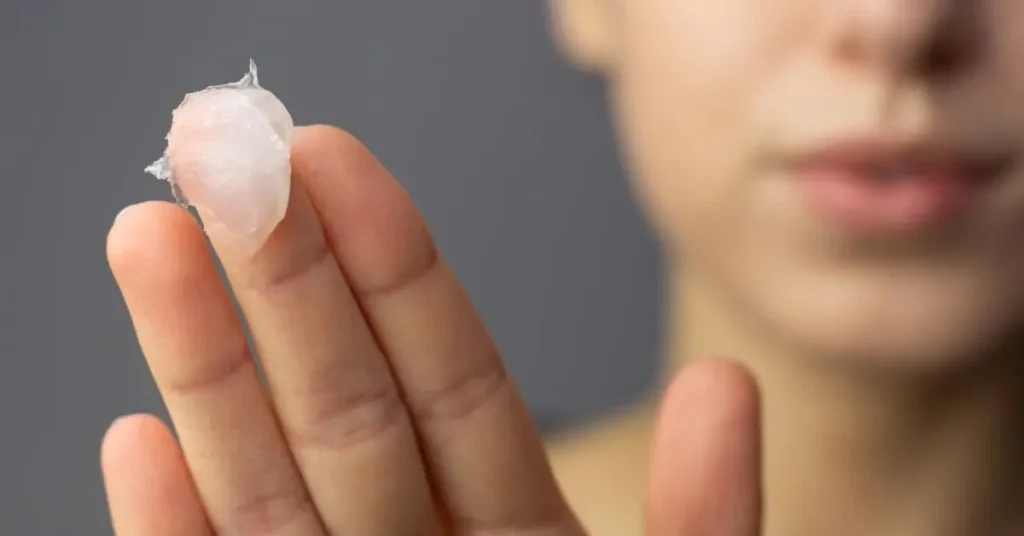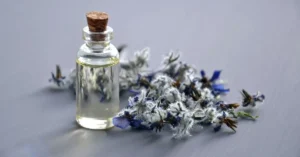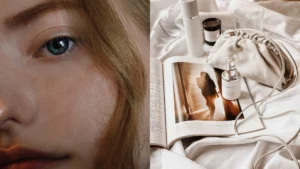Is Slugging Beneficial for Acne? The cosmetic practice referred to as “slugging” entails applying thick creams and oils to the skin. However, the pressing issue is whether it can truly improve acne conditions.
In this article, we’ll examine the relationship between slugging and acne, explore the scientific evidence and research, and provide tips on how to prevent it for clearer, healthier skin. Get ready to learn whether slugging is a friend or foe to your acne-prone skin.
Table of Contents
Does Slugging Help Acne?
Generally, I wouldn’t recommend you slugging, or the act of slathering the skin in a thick coating of Vaseline when you have oily or acne-prone skin.
It can trap perspiration and bacteria on the skin, causing more outbreaks, even though it might help make acne treatments’ active ingredients stronger.
Additionally, occlusive items like petroleum jelly can irritate your skin by clogging pores.
What is Slugging?

Slugging is a skincare trend in which people moisturize their faces with a thick layer of petroleum jelly, heavy creams, or oils.
The idea behind slugging is that these products form a “seal” on the skin, trapping moisture and resulting in a dewy, glowy complexion. The term “slugging” refers to the slippery and slimy texture that these products leave on the skin.
Does Slugging Cause Acne?
While the TikTok “slugging” skincare trend of applying an occlusive layer of petroleum jelly to the face has gained popularity, it is not recommended for those with acne-prone or oily skin.
This is because the protective layer can trap dead skin cells, sebum, and acne-causing bacteria, resulting in an infection and outbreak breeding ground.
Applying an occlusive over acne treatments may help strengthen the active ingredients and deliver results, but slugging is not comedogenic (acne-causing). As a result, if you have acne-prone or oily skin, you should avoid this trend.
FAQ:

Should you do slugging if you have acne?
If you have acne-prone skin, experts generally advise against slugging. Although petroleum jelly is non-comedogenic, it can cause irritation or worsen acne. Before attempting the trend, I’d recommend you consult with a dermatologist.
Does slugging with Vaseline make you break out?
Slathering on Vaseline has the potential to cause breakouts by trapping particles and bacteria beneath the occlusive layer. It should not be used on acne-prone skin because it may contribute to clogged pores. Dermatologists warn against using Vaseline because it can be too heavy for some skin types.
Does putting Vaseline on acne help?
Using Vaseline to treat acne does not cure it, but it may help protect the skin barrier while the pimple heals. Although some people claim that Vaseline can help clear up acne, this is not a proven method and should be used with caution. Although Vaseline does not directly treat acne, its protective formula may aid in skin recovery after a breakout.
Can I Slug with active acne?
Please avoid slugging when you use active ingredients like retinoids, salicylic acid, glycolic acid, or lactic acids.
Will slugging make acne worse?
Slugging, or applying a thick layer of petroleum jelly to the face, is not recommended for acne-prone or oily skin because it can trap bacteria and particles in the pores, causing infection and outbreaks. Furthermore, petroleum jelly can aggravate acne.
If you liked this blog article about the question: Does Slugging Help Acne, don’t forget to leave us a comment down below to tell us about your experience with slugging.






